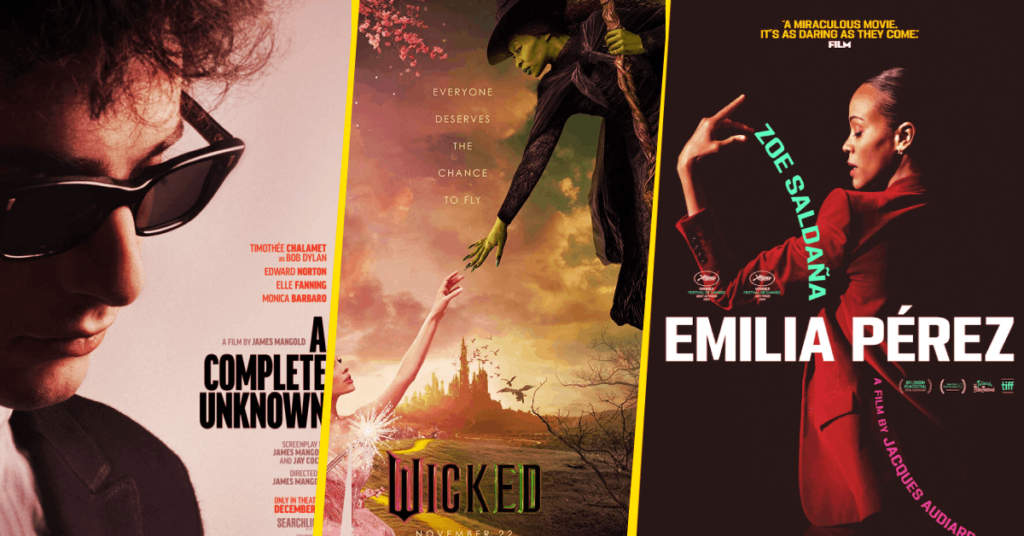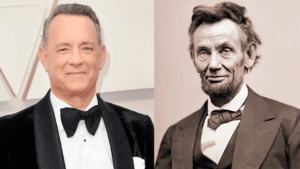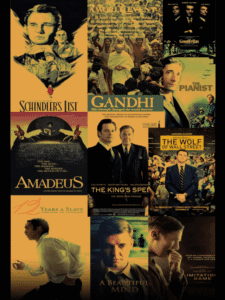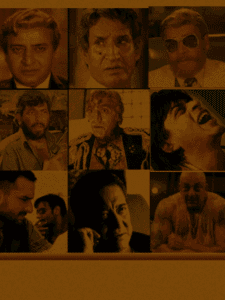Every year, the Academy Awards serve as a testament to the evolving landscape of storytelling in cinema, and the Oscars 2025 are no exception. This highlights the power of literary adaptations in film, showcasing how novels, memoirs, and Broadway musicals have influenced this year’s Best Picture nominees. This raises an important question: What makes literature such a vital source of inspiration for filmmakers?
The Influence of Literary Adaptations in Film
For decades, literature has been a foundational pillar of cinema. Some of the most iconic films ever made, The Godfather (based on Mario Puzo’s novel), Schindler’s List (adapted from Thomas Keneally’s Schindler’s Ark), and No Country for Old Men (based on Cormac McCarthy’s novel), all stem from the written word. Books and memoirs offer filmmakers intricate worlds, compelling characters, and deeply explored themes that might take years to develop from scratch in an original screenplay. Adaptations give directors and screenwriters a roadmap, a wellspring of ideas that enrich storytelling in film.
Many of the Best Picture nominees at Oscars 2025 demonstrate how literary adaptations in film continue to bring compelling narratives to the big screen. Conclave, based on Robert Harris’s gripping novel, delves into the secretive world of Vatican politics, creating an intense and thought-provoking drama. Nickel Boys, adapted from Colson Whitehead’s Pulitzer Prize-winning novel, brings to life a harrowing yet powerful story of racial injustice. Emilia Pérez, based on Jacques Audiard’s opera libretto of the same name, itself inspired by the 2018 novel Écoute by Boris Razon, adds another book-to-film adaptations to this year’s nominees.
More Articles for You:
- The Role of Women in Filmmaking
- 5 Hindi Movies of 2024 That Prove Small Budgets Can Create Big Impact
The Psychology Behind Iconic Villains: Why We Love to Hate Them
The Magic of Cinematography: Visuals Speak Louder Than Words
Memoir-Based Movies: Bringing True Stories to Life
Memoirs, in particular, hold a unique power in cinema. Unlike fictional novels, memoirs provide firsthand accounts of real-life experiences, offering audiences a direct connection to personal histories, cultural shifts, and emotional journeys. This year’s nominee, I Am Still Here shows the emotional power of memoir-based movies, offering personal, firsthand storytelling that resonates with audiences. Such films bridge the gap between reality and art, allowing viewers to step into the shoes of those who lived these experiences.
Broadway musicals in cinema: A Theatrical Legacy
The influence of stage plays and Broadway musicals on cinema is another crucial aspect of literary adaptations. From Wicked to past classics like Les Misérables, Broadway musicals in cinema continue to make a strong impact on the Oscars 25 stage. Wicked, based on the long-running Broadway musical (which itself is inspired by Gregory Maguire’s novel), is a testament to how stage productions can evolve into major cinematic events. The success of previous adaptations such as Les Misérables (2012), Chicago (2002), and West Side Story (2021) highlights how musical theatre enriches cinema with its dramatic storytelling, powerful music, and grand visual spectacle. These films bring beloved performances to a wider audience, allowing those who may never step foot in a theatre to experience the magic of Broadway.
Adaptations and the Evolution of Storytelling
While some critics argue that adaptations dominate the industry at the expense of original storytelling, the truth is that literature breathes new life into cinema. Adaptations allow for reinterpretation, modernization, and even subversion of classic narratives. This year’s Dune: Part Two continues to bring Frank Herbert’s legendary sci-fi novel to a new generation, just as The Lord of the Rings did for J.R.R. Tolkien’s epic saga.
Moreover, adaptations do not always mean a straightforward retelling. Filmmakers often infuse their own creative vision into existing works, reshaping narratives to reflect contemporary themes and sensibilities. For instance, Wicked offers an alternative perspective on The Wizard of Oz, while A Complete Unknown weaves together elements from Bob Dylan’s life and career in a way that is uniquely cinematic.
Why Adaptations Matter
The prevalence of adaptations at the Oscars 25 underscores how literature continues to shape and elevate filmmaking. Novels, memoirs, and stage plays provide filmmakers with rich, complex narratives that resonate deeply with audiences. They allow for the exploration of different cultures, historical moments, and human emotions. As we celebrate another year of cinematic excellence, it is evident that literature remains an essential force in shaping the films we love. Whether through novels, memoirs, or theatrical productions, these stories remind us of the timeless power of storytelling, one that seamlessly transcends the page and finds new life on the silver screen.

























